
5 Ways We Can Keep Your Immune System Strong
December 10, 2025/by Kaplan Center
Want to Take Your Workout to the Next Level Next Year? These Tips Can Help
December 8, 2025/by Kaplan Center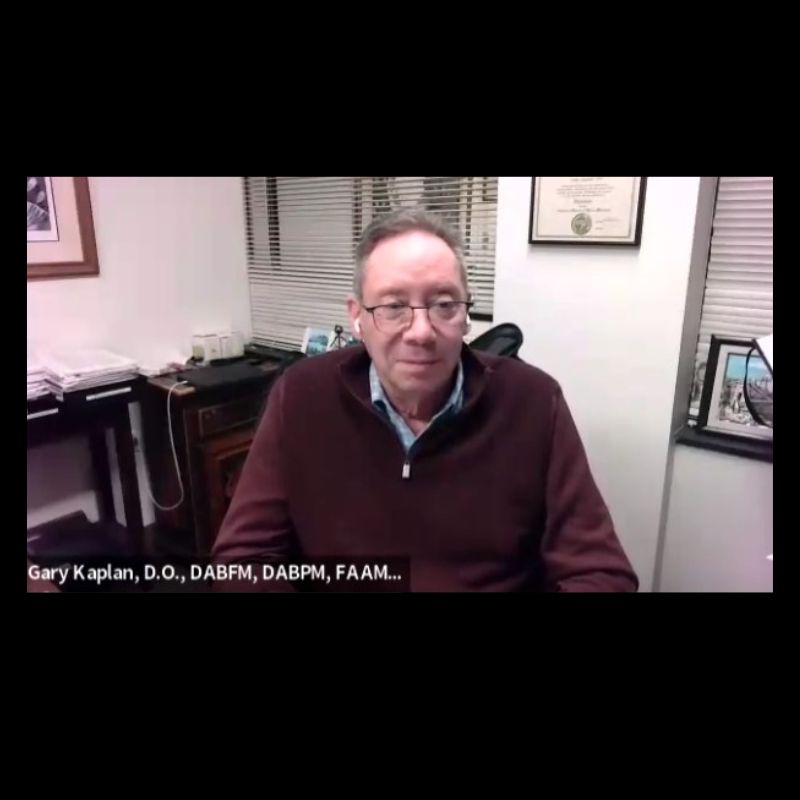
Dr. Kaplan’s Dos and Don’ts of the Holiday Season
December 3, 2025/by Kaplan Center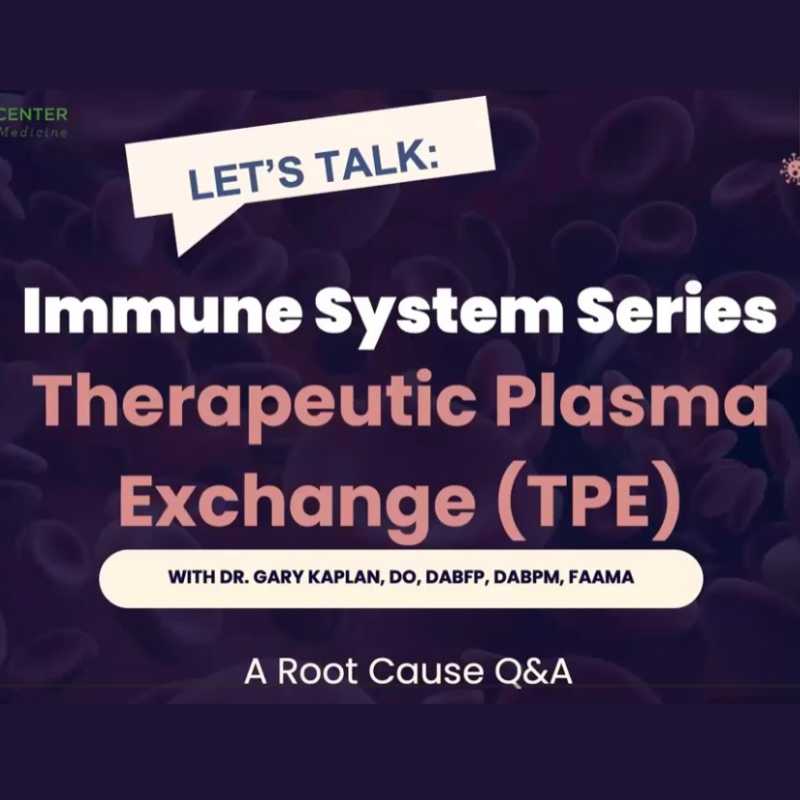
Let’s Talk Webinar – A Root Cause Q&A
December 2, 2025/by Kaplan Center
Navigating Holiday Meals with Gut Issues: Simple Tips for a Comfortable Season
December 1, 2025/by Chardonée Donald, MS, CBHS, CHN, CNS, LDN
Craniosacral Therapy for TMJ | Say Goodbye to the Daily Grind
November 19, 2025/by Patricia Alomar, M.S., P.T.
From Compassionate Care to Personal Healing: A Letter to My Patients
November 18, 2025/by Kaplan Center
8 Steps to a Healthier Gut—and a Longer, Healthier Life
November 18, 2025/by Kaplan Center
Mid-Life Irritability & Fatigue Improved by Hormonal Balancing
November 13, 2025/by Lisa Lilienfield, MD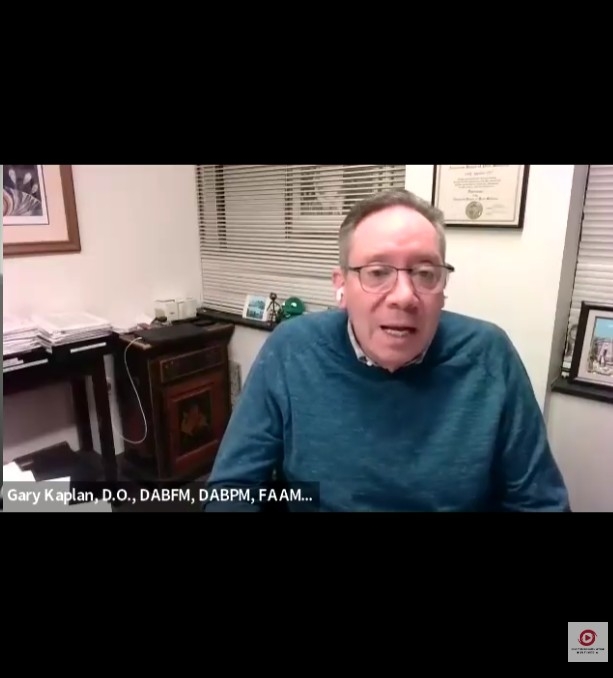
From Challenges to Change: Dr. Kaplan on Healthcare’s Biggest Challenges
October 29, 2025/by Kaplan Center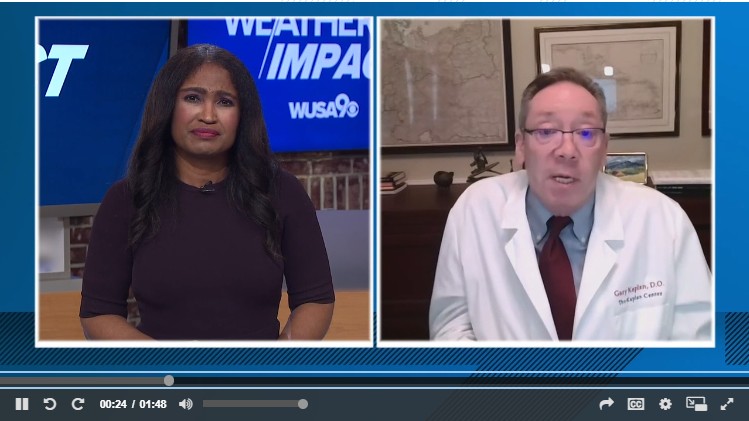
Overlooked Dangers of Mold Exposure and How to Stay Safe – Dr. Kaplan Talks to WUSA9
October 27, 2025/by Kaplan Center
Let’s ‘Fall’ Into Wellness: A Nutritionist-Approved Immune-Boosting Recipe for Cold and Flu Season
October 13, 2025/by Chardonée Donald, MS, CBHS, CHN, CNS, LDN
PANS/PANDAS – When Sudden Symptoms Signal Something More
October 9, 2025/by Kaplan Center
Beating Burnout, A Nutritionist’s Perspective
October 1, 2025/by Chardonée Donald, MS, CBHS, CHN, CNS, LDN
3 Things That Can Happen After Stopping GLP-1s
September 11, 2025/by Chardonée Donald, MS, CBHS, CHN, CNS, LDN
What Families Need to Know About COVID and Flu Season
September 3, 2025/by Kaplan Center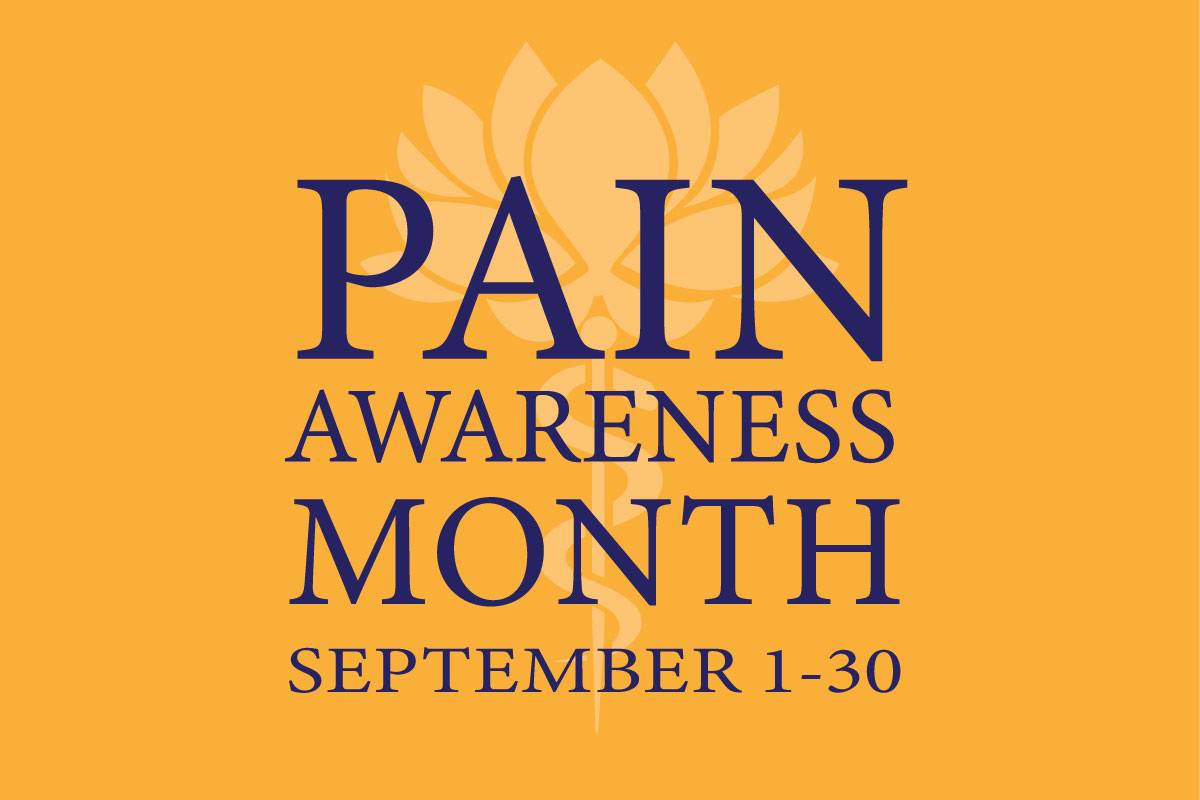
September is Pain Awareness Month
September 1, 2025/by Kaplan Center
Dr. Kaplan Spoke to Northern Virginia Magazine About COVID, Flu, and Immunity — Here’s What You Should Know
August 14, 2025/by Kaplan Center
“Why Do I Feel Like Crap?”: The Overlap Between Long COVID and Perimenopause
July 30, 2025/by Kaplan Center
Why People Are Turning to EMDR (and Why You Might Want to Too)
July 23, 2025/by Kaplan CenterAre you looking to improve your overall wellness?
Personalized care you can trust.
Our integrative, non-surgical treatment approach is highly successful in maintaining wellness and also treating chronic pain and illness. For more than 30 years, we have delivered superior, cutting-edge health care in the Washington, DC area.
QuickLinks
Contact Information
Tel: 703-532-4892
Fax: 703-237-3105
6829 Elm Street, Suite 300
McLean, Virginia 22101
Map It
Hours of Operation
Mon – Thu : 8 am – 5 pm, ET
Fri : 8 am – 12 pm, ET
3 Reasons to Include Turmeric In Your Diet
/in Inflammation, Nutrition/by Gary Kaplan, DONative to southwest India, and known for its radiant golden color and unique taste, turmeric has been used as a culinary herb for thousands of years, and is found in abundance in many Indian dishes, especially curries. But it is its role as a healing herb that has caused scientists to take a closer look at this “miracle spice.”
The magic of turmeric resides in the roots, specifically in the chemical compound called curcumin. Curcumin is a polyphenol – a chemical compound found in plants with antioxidant properties, and myriad therapeutic attributes. A study in Advances in Experimental Medicines and Biology, went so far as to state that “Curcumin has been shown to exhibit antioxidant, anti-inflammatory, antiviral, antibacterial, antifungal, and anticancer activities and thus has a potential against various malignant diseases, diabetes, allergies, arthritis, Alzheimer’s disease, and other chronic illnesses.”
#1 – Defense against cognitive decline
A 2018 article in the Journal of Alzheimer’s Disease highlighted the protective effects of curcumin in the treatment for Alzheimer’s disease (AD). The review particularly looked at curcumin’s effect against amyloid beta (Aß), a peptide that plays a central role in the pathology of AD.
Furthermore, curcumin has anti-proliferative actions on microglia. Microglia are immune cells of the central nervous system that become active in response to any number of stressors on the body. However, if the microglia have been stimulated to react too often, they become hyper-reactive, which can trigger system-wide inflammation that can be difficult to stop.
#2 – Defense against cancer
A 2019 review of research on the role of curcumin in cancer therapy, confirmed that “curcumin exhibits anticancer ability by targeting different cell signaling pathways including growth factors, cytokines, transcription factors, and genes modulating cellular proliferation and apoptosis,” all of which are associated with the progression of cancer.
According to another systematic review in 2020, curcumin shows both preventative and therapeutic effects on various types of cancers when used as an adjunct therapy in cancer treatment.
#3 – Treatment of Osteoarthritis
Curcumin’s anti-inflammatory properties also make it a strong candidate for treating inflammatory diseases such as osteoarthritis. A 2017 study in the Journal of Exercise Rehabilitation found that supplementation with a bioavailable form of curcumin “appeared to be effective in reducing the pain and enhancing muscular and balancing function” in patients with knee osteoarthritis.
How should you add curcumin to your diet?
Studies on curcumin and its efficacy in humans is ongoing, but the research looks quite promising. With very few side effects, powerful anti-inflammatory, anti-cancer, and antioxidant properties, and a long history of medicinal use, curcumin can play an important role in maintaining the body’s normal inflammatory response, while also supporting healing and relieving pain.
*Theracurmin® HP is available to purchase from the Kaplan Medical Center Store.
Dr. Kaplan’s article first appeared on U.S. News and World Reports on July 24, 2015. Updated in Jan 2023.
Craniosacral Therapy for Chronic Headache Relief
/in Treatments/by Patricia Alomar, M.S., P.T.Chronic headaches affect millions of people each year and are one of the most common complaints expressed by our patients at The Kaplan Center. An individual can experience headaches for any number of reasons, including stress, stationary positioning in front of a computer, and muscle tightness causing a decreased range of motion in the neck and head. Other contributing factors could include improper alignment of the jaw, hormonal factors, a car accident, a change in vision, or some other disease process.
Craniosacral therapy is an osteopathic technique that can be a very valuable tool for treatment.
The craniosacral system, which extends from the cranium to the sacrum and coccyx, houses the central nervous system (CNS). Cerebrospinal fluid (CSF) is formed in the brain and flows within the dural membrane (one of the 3 protective layers of the CNS), covering our bones, joints, and the sutures that interconnect those bones, in a rhythmic rise-and-fall of fluid volume and pressure. Acting as a “shock absorber,” the CSF delivers nutrients and washes away waste products from the metabolic processes. Tension in the membranes can disrupt the cranial rhythm. Through gentle palpation, a trained craniosacral therapist can use this rhythm as both an evaluative and therapeutic tool. Our bodies have many different rhythms and are constantly in motion. In the same way that we refer to a “resting heart rate” or our “resting respiratory rate,” our cranial rhythmic impulse (flow of the cerebrospinal fluid) usually manifests between 6-12 cycles per minute.
Craniosacral therapy is a very effective, light-touch therapy that supports the body’s own healing resources.
Therapists are trained to feel and monitor changes in the body by placing their hands in the areas that are the source of dysfunction. They follow the body’s cues as the body works to release the tensions that are causing pain. Nerve endings in our skin send messages to the brain that stimulate a response either to pain or pleasure. A therapist’s gentle, non-invasive touch in a painful area allows the body to respond and relax, whereas too firm a touch activates neuromuscular tension and stress patterns, preventing the ability to affect this very deep core system. Using the gentle method, therapists are therefore able to feel changes in different anatomical structures in the body, bones, soft tissue, membranes, and fluids.
Questions? Give Us a Call!
703-532-4892 x2
During a treatment session, it is possible to feel a variety of sensations, such as heat, cold, pulsing and/or vibration, but patients don’t necessarily have to feel any of these in order for the technique to be effective. Almost always, a deep sense of relaxation is felt. Focusing on what you are feeling within your body during treatment is extremely helpful. Symptoms can momentarily increase and then resolve just as quickly. Patients might experience remembering an unpleasant or traumatic event in their life, or they might feel sensations in another part of their body that is not being touched. All of these are indications that tension within the body is returning to a state of homeostasis, a term reflecting balance within the system.
The effects of the treatment are not necessarily felt right away and typically several treatments may be needed to effect significant change. The patient could feel very relaxed, fatigued, looser in their body’s movements, or they could notice improved ease of breathing or even be slightly disoriented – all of which indicate that the body is experiencing a new normal and needs time to adjust to it. The goal of craniosacral therapy is that this gradual re-adjustment will help decrease some of the symptoms of headaches.
A self-help technique using a Still Point Inducer (SPI) can be tried at home. The SPI can be made by tying two tennis balls tightly in a sock so they cannot shift around. These are then placed on the back of the head with a rolled-up towel for support under the neck or by lying on the floor with the SPI under the head in line with the ears. Just ten minutes is enough to help with headache pain and the method can be repeated several times during the day.
If you suffer from recurring headaches or migraines, craniosacral therapy can be a safe and effective alternative to prescription medication. Its gentle touch can help release the emotional and physical imbalances that have been stored in the body’s membranes and connective tissue, enabling the central nervous system to perform optimally.
– Patricia Alomar, M.S., P.T.
We are here for you, and we want to help.
Our goal is to return you to optimal health as soon as possible. To schedule an appointment please call: 703-532-4892 x2
With your help, finding a cure for neuroinflammatory disease IS possible
/in News/by Gary Kaplan, DOHave you ever seen a brain on fire?
I see it every day and it is tragic.
So debilitating.
So exhausting, it’s all many of my patients can do to get dressed and come to the Kaplan Center to see me.
Some are children and teens confined to a wheelchair. Many are suicidal because they believe this is all the rest of their life holds. And the frightening thing is I can’t promise them they are wrong.
That’s why I’m writing today. Because your donation can truly help stop this tragedy.
And in this season of love towards all people, your year-end help should go where you can feel you truly made a difference.
I formed the non-profit Foundation for Total Recovery because I know what causes this scourge.
Incredibly, I have discovered that conditions including:
are not diseases in themselves, but actually symptoms of an underlying inflammation of the brain – a neuroinflammatory disease causing a “brain on fire.”
I know it is stunning, but it is also absolutely true.
I established the Foundation for Total Recovery in 2015 to provide support and find a cure for all who suffer from chronic pain and depression by educating patients, building an online community of patients, doctors and researchers, partnering with leading researchers, academics and innovators, and studying data to find a baseline approach to diagnosing and curing neuroinflammation.
The Foundation serves thousands of people, nationally and internationally, through a variety of research and outreach programs, specifically our annual autoimmune focused conference.
Our mission is to better understand, diagnose, treat, and ultimately prevent the progression of neuroinflammatory disease.
I believe it’s a noble mission.
Your investment and support will help us complete the funding to continue driving change for a critical group of underserved people.
To help us with a tax-deductible donation before the end of the year, just click here:
Blessings of the holiday season to you and all you hold dear.
Thank You and Happy Holidays,
Dr. Gary Kaplan
President, Foundation for Total Recovery
PS: I am eternally grateful to you and promise I will fight for these suffering people every day of my life as a physician and healer.
They tell me people always read the PS so here is my message: Thank you, have a happy and healthy new year, and please: CLICK HERE